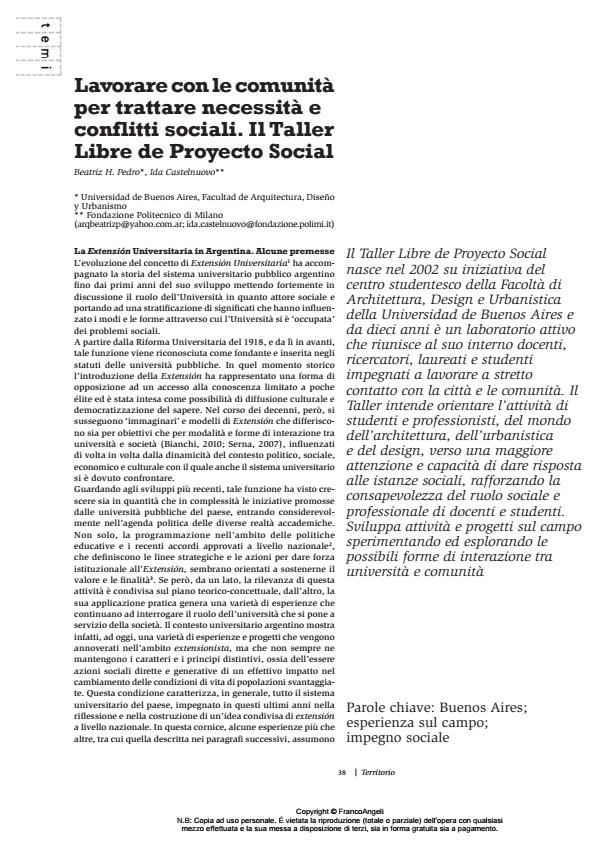Working with communities to address needs and social conflicts. The Taller Libre de Proyecto Social
Journal title TERRITORIO
Author/s Beatriz H. Pedro, Ida Castelnuovo
Publishing Year 2013 Issue 2013/66
Language Italian Pages 6 P. 38-43 File size 359 KB
DOI 10.3280/TR2013-066007
DOI is like a bar code for intellectual property: to have more infomation
click here
Below, you can see the article first page
If you want to buy this article in PDF format, you can do it, following the instructions to buy download credits

FrancoAngeli is member of Publishers International Linking Association, Inc (PILA), a not-for-profit association which run the CrossRef service enabling links to and from online scholarly content.
The Taller Libre de Proyecto Social was born in 2002 as a result of an initiative taken by the student centre of the faculty of Architecture, Design and Urban Studies of the Universidad de Buenos Aires. It has been an active workshop for 10 years now and brings together within it lecturers, research workers, graduates and students committed to working in close contact with the city and its communities. The Taller seeks to encourage students and professionals from the world of architecture, urban planning and design to pay more attention to social issues and to acquiring greater capacity to respond to them, by increasing awareness of the social and professional role played by lecturers and students. It develops activities and projects in the field exploring and experimenting with possible forms of interaction between universities and communities.
Keywords: Buenos Aires; fieldwork experience; social commitment
Beatriz H. Pedro, Ida Castelnuovo, Lavorare con le comunità per trattare necessità e conflitti sociali. Il Taller Libre de Proyecto Social in "TERRITORIO" 66/2013, pp 38-43, DOI: 10.3280/TR2013-066007